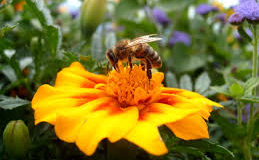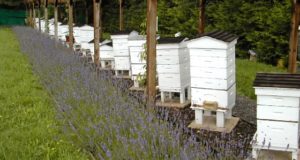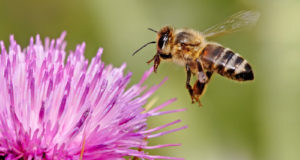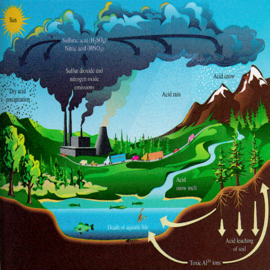
Genetically Modified (GM) foods may have been found to have an impact on human health although the final decision is not in yet. However, GM plants have been found growing in the wild and a new study now finds the insecticides from GM crops are present in the streams of the Midwestern United States.
Jennifer Tank and some of her colleagues from the University of Notre Dame have found pollution throughout the streams of the Midwest from corn crop by-product transgenic materials for up to six months after the corn crop was harvested.
Scientists have genetically engineered transgenic corn to create its’ own insecticide. This allows farmers to save money and time since they won’t have to apply insecticide and they are able to harvest a better crop. The insecticide created by the transgenic corn deters crop pests without need for further application.
During studies by the researchers, it was determined that transgenic material from the corn enters streams in the Midwest since the majority of streams in the Corn Belt are in close proximity to corn fields. Once it enters the stream, it can be transported downstream into other bodies of water. This study surveyed 217 stream sites in northwestern Indiana six months after the crop harvest to determine the fate and persistence of insecticidal proteins.
Their findings included data showing 86 percent of the sites tested contained corn leaves, husks, cobs, and/or stalks in the active stream channel. It was common to find corn crop by-products in the agricultural streams. The researchers used sensitive laboratory tests to measure the amount of actual level of insecticidal protein from the GM corn. Dissolved residues were found in stream water samples at 23 percent of the sites during this test which was six months after the harvest.
The research performed during this study found that the consumption of GM corn by-products reduced the growth of stream insects while increasing the mortality. Aquatic and riparian predators prey on stream insects and the reduction in these insects means a reduction in their food supply. Widespread planting of these GM transgenic corn crops is having an unexpected ecosystem-scale consequence.
Big name companies have created a monopoly on GM products and put them out there for use without thought to the possible long-term effects on the health of the public or the dangers to our environment. Check out the products you use and do your homework. How many products are in your kitchen that contains a genetically modified food product?

Source by Lynda Lacroix
 Vitamin Agent The Health & Naturalistic Source
Vitamin Agent The Health & Naturalistic Source





